Crisis Assistance Available for Those in Need
Crisis Assistance is available year-round to any income-eligible applicant.
*PARTICIPANTS MAY NOT RECEIVE MORE THAN ONE (1) CRISIS PAYMENT IN A TWELVE (12) MONTH PERIOD.
Crisis heating assistance
Families meeting certain eligibility requirements will receive one payment that will be applied to their utility bill to prevent loss of service or help to restore services. The goal is to help qualifying families resolve their crisis within 48 hours. Funding is limited and available year-round on a first-come, first-serve basis.
The maximum crisis benefit* authorized without Idaho Department of Health and Welfare (IDHW) approval is $1,499.00. If a participant requires a benefit of more than $1,499.00, the agency must receive approval from IDHW.
*The maximum crisis benefit allowable is $1,500.00
Allowable Crisis Expenditures:
- Bill Assistance
- Disconnection/Reconnection Fees
- Utility Poles/Gas line Hookups*
- Heating System Repairs
- Heating System Replacements*
- Cooling System Repairs
- Cooling System Replacement*
- Wood Stove Purchase*
- Pellet Stove Purchase*
* Requires prior approval from IDHW
Effective October 1, 2024 – September 30,2025
Eligibility is based on Annual Gross Income Limits listed below. Monthly Income Limits and 3-Month Income Limits are provided as a quick reference tool; these totals cannot exceed the Annual Income Limits.
| Family Size | Annual Income Limit | Monthly Income Limit | 3-Month Income Limit |
| 1 | $30,365.00 | $2,530.42 | $7,591.25 |
| 2 | $39,708.00 | $3,309.00 | $9,927.00 |
| 3 | $49,051.00 | $4,087.58 | $12,262.75 |
| 4 | $58,395.00 | $4,866.25 | $14,598.75 |
| 5 | $67,738.00 | $5,644.83 | $16,934.50 |
| 6 | $77,081.00 | $6,423.42 | $19,270.25 |
| 7 | $78,833.00 | $6,569.42 | $19,708.25 |
| 8 | $79,080.00 | $6,590.00 | $19,770.00 |
| 9 | $87,150.00 | $7,262.50 | $21,787.50 |
| 10 | $95,220.00 | $7,935.00 | $23,805.00 |
| Each Additional Member | $8,070.00 | $672.50 | $2,017.50 |

Need a helping hand with your heating bills?
The Low Income Heating Assistance Program (LIHEAP) is a federally funded program that provides a one-time (per program year) benefit to assist with heating costs. LIHEAP helps eligible low-income families pay a portion of the costs for heating their homes in Idaho’s winter months. Energy conservation education is also available.
The Weatherization Assistance Program (WAP) helps eligible low-income families conserve energy, save money, and improve living conditions by repairing or replacing heat sources (heaters, furnaces, etc.), installing insulation, weather stripping, and caulking around windows and doors.
More information about these programs is available on the Idaho Health and Welfare website.

Other Assistance Programs
Because of an unforeseen family emergency or financial hardship, some people have difficulty paying their heating bills and may be eligible for assistance through one of the Heating Assistance Programs.
Project Share and Project Warmth are community programs that may be able to assist you. Also, if you live in the Treasure Valley, the Keep Kids Warm fund is available to assist with heating costs for low-income families with children. If you would like to make a one-time contribution or an automatic monthly pledge amount to any of these programs, please complete the Pledge Card and return it with your natural gas payment or mail to: P.O. Box 7608; Boise, ID 83707-1608.
Search and connect to support through findhelpidaho.org. Financial assistance, food pantries, medical care, and other free or reduced-cost help is available.
211 works a bit like 911. Calls to 211 are routed by the local telephone company to a local or regional calling center. The 211 center’s referral specialists receive requests from callers, access databases of resources available from private and public health and human service agencies, match the callers’ needs to available resources, and link or refer them directly to an agency or organization that can help.
Types of Referrals Offered by 211
- Basic Human Needs Resources – including food and clothing banks, shelters, rent assistance, and utility assistance.
- Physical and Mental Health Resources – including health insurance programs, Medicaid and Medicare, maternal health resources, health insurance programs for children, medical information lines, crisis intervention services, support groups, counseling, and drug and alcohol intervention and rehabilitation.
- Work Support – including financial assistance, job training, transportation assistance and education programs.
- Access to Services in Non-English Languages – including language translation and interpretation services to help non-English-speaking people find public resources (Foreign language services vary by location.)
- Support for Older Americans and Persons with Disabilities – including adult day care, community meals, respite care, home health care, transportation and homemaker services.
- Children, Youth and Family Support – including child care, after-school programs, educational programs for low-income families, family resource centers, summer camps and recreation programs, mentoring, tutoring and protective services.
- Suicide Prevention – referral to suicide prevention help organizations.
